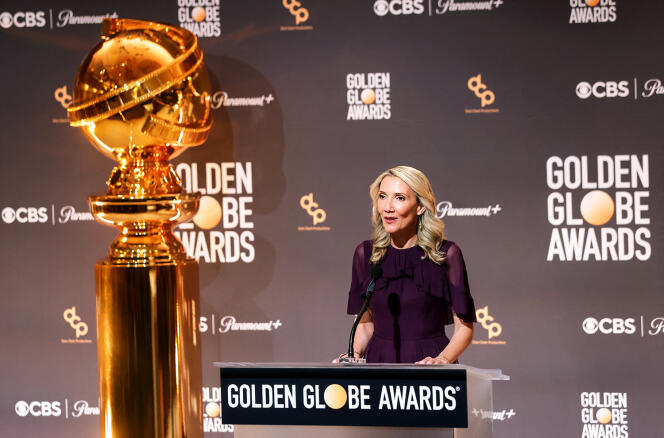


It's a highly coveted honor. On Sunday evening, January 7, among the endless list of Golden Globes awarded in Los Angeles to the films and TV series of the year, two new categories will be introduced. The first is "Best Performance in Stand-Up Comedy on Television", and the second is "Cinematic and Box Office Achievement".
To compete in the latter category, nominated films must have grossed at least $150 million at the box office, including $100 million in the United States alone, or have been massively viewed on streaming platforms. Voters are then asked to select the winner on the sole criterion of "excellence".
In addition to the sweet Barbie and the acidic Oppenheimer, the two hits of the summer, other contenders include film franchises (the latest Mission: Impossible, Guardians of the Galaxy and John Wick), animated films Super Mario Bros and Spider-Man: Across the Spider-Verse, as well as Taylor Swift: The Eras Tour. Between them, these productions took in over $4 billion (€3.6 billion) in revenue worldwide. In France alone, they generated sales of 26 million tickets.
So do these blockbusters really need additional recognition? Yes, argued Golden Globes president Helen Hoehne on December 14 in an interview with Vanity Fair. "The idea behind it was to give popular films a place in this award season because those are the films that people have actually gone to see (...) this is how movie theaters are kept alive."
In fact, this "innovation" remains primarily motivated by the fragility of an organization under fire for its lack of diversity. NBC, which agreed to broadcast the awards ceremony in January 2023 after boycotting it the previous year, drew barely 6.3 million viewers: the worst recorded in the 27 years the ceremony has been broadcast on the channel.
"The gap between the movies seen in theaters and those nominated is widening," Gabriel Rossman, professor of sociology at the University of California, Los Angeles pointed out. "What's more, at both the Golden Globes and the Oscars, the strategic spectacle of the glamorous red carpet is fading to the advantage of other events, such as the Met Gala," which takes place in early May and generates more headlines with its dazzling high-fashion silhouettes. In short, "reconnecting with the public is becoming more urgent," observes this creative industries specialist.
The introduction of such a category, already tried and tested on both sides of the Atlantic, seems like a minefield. In France, attacks against overly elitist César awards that snub popular productions and actors have almost always existed. "Do you have to be a legend like Annie Girardot or Danielle Darrieux to receive honors?" criticized actress Mathilde Seigner as early as 2003 in Elle. She was later joined by actress Alexandra Lamy, who lamented that, for the public, "there's nothing more boring than the Césars."
You have 50% of this article left to read. The rest is for subscribers only.
